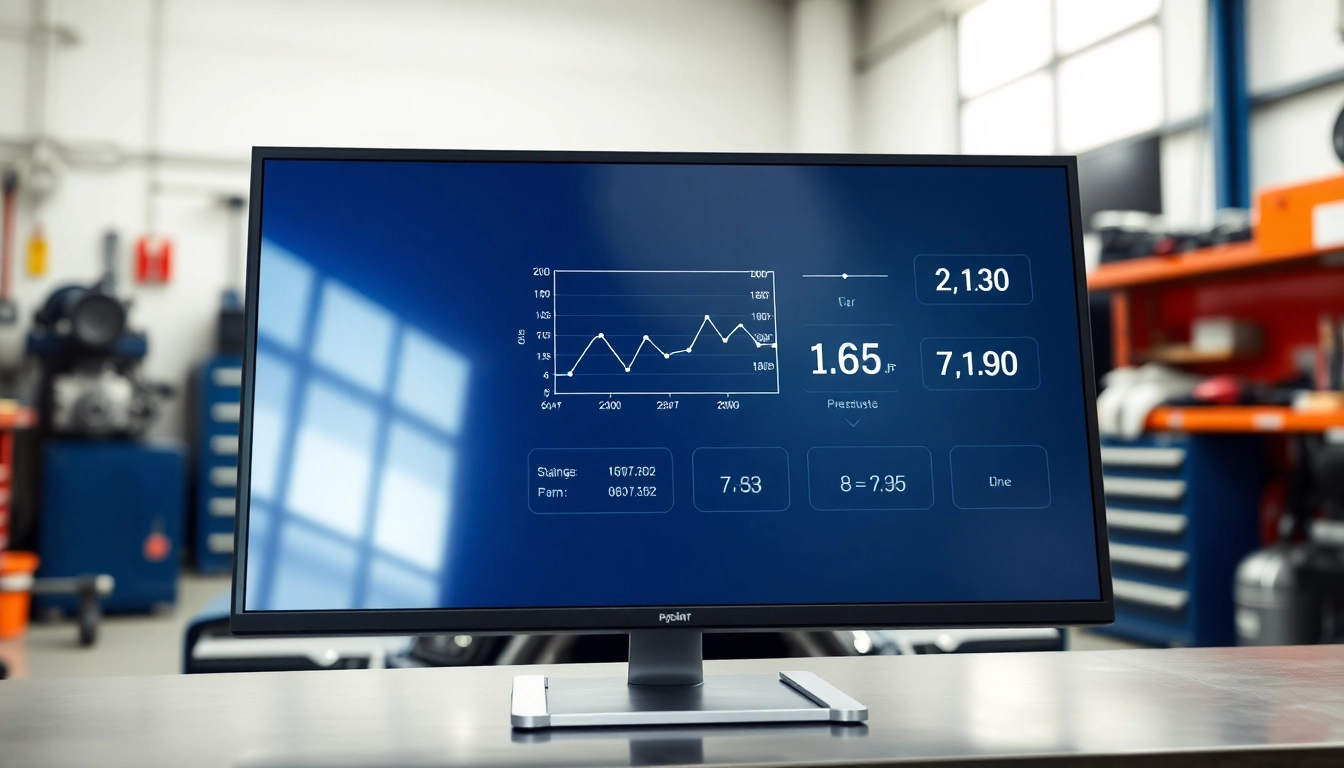Understanding Horsepower Calculator Basics
What is Horsepower?
Horsepower is a unit of measurement for power, which quantifies the rate at which work is done. The term was coined in the 18th century by Scottish engineer James Watt to compare the output of steam engines with the power of draft horses. One horsepower is equivalent to about 746 watts. This concept has become essential in various fields, particularly in automotive engineering, machinery, and power generation. Understanding horsepower enables engine builders, mechanics, and enthusiasts to evaluate and compare the performance capabilities of engines in different vehicles.
The Importance of Horsepower in Engines
Horsepower is a critical factor in determining the performance and efficiency of engines. It dictates how quickly an engine can perform work, and thus it plays a vital role in various applications—from cars to industrial machines. High-performance vehicles rely heavily on horsepower for speed, acceleration, and overall driving experience, while commercial engines depend on it for productivity and efficiency. Evaluating horsepower can also assist in making informed decisions regarding engine modifications, performance upgrades, and understanding how an engine compares against competitors in the market.
How a Horsepower Calculator Works
A horsepower calculator is a tool designed to estimate an engine’s horsepower based on specific variables such as torque, RPM (revolutions per minute), and force. There are different formulas used for various types of engines, but the most common is the calculation based on torque and RPM:
Horsepower (HP) = (Torque (lb-ft) × RPM) / 5252
This formula provides a straightforward method for users to input torque and RPM to derive horsepower values. Many of these calculators are user-friendly, allowing anyone from mechanics to motorsport enthusiasts to quickly gauge their engine’s performance. Various online resources and dedicated tools, like the Horsepower Calculator, facilitate quick and accurate assessments.
How to Use a Horsepower Calculator Effectively
Steps to Input Data Accurately
Using a horsepower calculator effectively involves several steps to ensure accurate input and results:
- Gather Required Information: This can include torque (usually provided in lb-ft), RPM, and sometimes other parameters like engine displacement, fuel type, or even modifications made to the engine. Accurate data is crucial for reliable results.
- Understand the Units: Ensure that all input variables are in the correct units for the calculator. For example, torque should be in lb-ft, and RPM should reflect the engine’s operating speed.
- Input Data: Enter each value into the designated fields. Double-check to confirm that you’ve entered the data correctly to avoid any miscalculations.
- Run the Calculation: Initiate the calculation by hitting the “calculate” button (or similar), which will provide you with the horsepower output based on your inputs.
Interpreting the Results
Once the horsepower is calculated, interpreting the results is key to understanding your engine’s performance:
- Baseline vs Modified: Compare your horsepower value to the manufacturer’s specifications to see how modifications or performance upgrades have affected your engine.
- Performance Goals: Use your horsepower data to assess if your engine meets your specific performance goals, whether you aim for speed, towing capacity, or fuel efficiency.
- Benchmarking: Benchmark against similar vehicles or engines to gauge where your machine stands in terms of performance.
Common Mistakes to Avoid
While using a horsepower calculator, users may encounter several common pitfalls:
- Incorrect Inputs: Entering wrong values or using improper units can lead to inaccurate results. Always double-check inputs.
- Ignoring Environmental Factors: Factors such as altitude can affect performance but may not be accounted for in basic calculators.
- Misunderstanding Torque Curves: Some users may not consider the complete torque curve of their engine, which can influence performance beyond what a single horsepower number might indicate.
Advanced Horsepower Calculation Techniques
Using Torque and RPM for Calculations
Advanced horsepower calculations often involve integrating torque curves and RPM characteristics to produce a more nuanced understanding of engine performance. Engine developers may utilize dynamometers for real-world testing to create accurate torque and power curves. By capturing the torque at different RPMs, one can map out the horsepower across the engine’s entire range, allowing vehicle owners or builders to make precise decisions regarding gear ratios, engine modifications, or tuning strategies.
Factors Influencing Horsepower Readings
Several elements can influence the readings provided by a horsepower calculator:
- Engine Specifications: The make-up of the engine itself—including displacement, configuration, and design—can skew results significantly.
- Fuel Type: The choice of fuel can also dramatically affect performance parameters. Different fuels have varying energy contents that can lead to different horsepower outputs.
- Engine Health: An engine’s mechanical condition—such as wear and tear—can also influence power readings.
- Environmental Conditions: Air temperature, barometric pressure, and humidity can affect engine performance and, in turn, horsepower readings.
Comparative Analysis with Real-World Data
In practice, comparing the horsepower generated by a calculator with actual data collected under controlled conditions can help verify the accuracy of the calculator’s prediction. Utilizing vehicles on a chassis dynamometer facilitates this kind of comparative analysis. It allows the operator to generate a detailed horsepower and torque graph, providing insights into how the engine performs under various loads and driving conditions. Analyzing discrepancies can help make informed decisions on what modifications or tuning may yield the best performance improvements.
Applications of Horsepower Calculators
Horsepower in Automotive Performance Tuning
Performance tuning is an application where horsepower calculators become immensely valuable. Enthusiasts can optimize their vehicle’s tuning by adjusting parameters like fuel maps, exhaust systems, and airflow. By accurately calculating horsepower before and after modifications, users can assess the impact of their changes effectively.
This practice is common among motorsports participants, where every additional horsepower can translate into significant competitive advantages. Effective tuning not only focuses on maximum horsepower but also evaluates how the powerband and torque curves change, resulting in better overall vehicle performance.
How Mechanics Use the Calculator
Mechanics utilize horsepower calculators to assess vehicle performance as part of their diagnostic processes. By measuring the output of an engine, mechanics can identify potential issues such as unexpected performance drops or compare different setups for customer vehicles. This approach aids in providing customized solutions depending on the client’s needs and can justify potential repairs or enhancements by showing tangible performance metrics.
Horsepower Calculators for Electric Motors
Electric motors are becoming increasingly popular in various applications, and horsepower calculators tailored to electric motors differ slightly in operation. Electric motors typically deliver power ratings in kilowatts (kW), but these can be converted into horsepower using the relation that 1 kW equals approximately 1.341 horsepower. When using a calculator designed for electric motors, parameters such as voltage, current, and efficiency ratings are often included to give a more rounded picture of the motor’s performance and operational capacity.
Future of Horsepower Calculator Technology
Trends in Engine Performance Measurement
The future of horsepower calculators can be expected to evolve with advances in technology and data analytics. Integration of telematics—collecting and analyzing data from vehicles in real time—enhances the traditional horsepower calculation process. Such advancements will allow for more precise performance tuning to be executed dynamically, even while driving, paving the way for better performance and efficiency optimizations.
Integrating AI with Horsepower Calculators
Artificial intelligence is set to play a significant role in optimizing horsepower calculations. By using machine learning algorithms, calculators could not only predict horsepower more accurately but also recommend engine modifications tailored to individual driving styles and vehicle usage. These personalized suggestions could optimize both performance and fuel efficiency, providing an invaluable resource for mechanics and enthusiasts alike.
Innovations in Automotive Tools and Software
As the automotive sector continues to move towards electrification and hybrid technologies, the tools and software used to assess engine performance will also need to adapt. Advanced diagnostics and horsepower calculators will likely feature enhanced user interfaces and more sophisticated data analysis capabilities. The integration of augmented reality (AR) to visualize changes and impacts on horsepower in real-time could revolutionize how tuning and modifications are approached.



